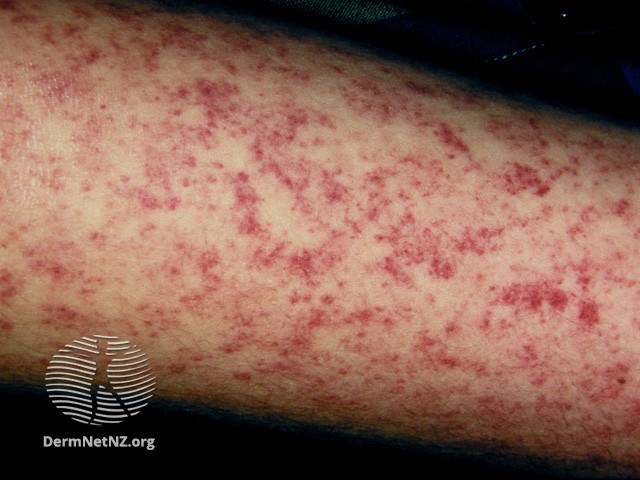A young child in Richmond who travelled internationally without having received the vaccine became the province’s first confirmed case of measles in five years.
That has prompted a possible exposure advisory for anyone who was at the Vancouver Airport Hotel in Richmond last week from Feb. 26-March 2 or was at the Richmond ICBC office at 5300 No. 3 Road on Feb. 26 from 9 a.m. - 1 p.m.
While measles is on the rise is some countries and there have been at least nine cases so far this year in Canada, mostly in Quebec, the chances of a mass outbreak are negligible due to the fact most Canadians have been immunized and are already immune to the highly contagious virus.
There are no reported cases of measles in northern B.C. but health officials are warning British Columbians to make sure they are immunized before traveling internationally.
“Measles is not endemic,” said provincial health officer Dr. Bonnie Henry. “It’s not in Canada anymore because of the vaccination programs. Cases are imported from other places, and with people travelling over March break, they need to be aware where they’re going and check their vaccination status.”
The B.C. government recently announced an initiative to catch up all school-age children (K-12) who might be unimmunized or under-immunized with measles vaccines.
Measles is an airborne virus that can survive as small droplets in the air for several hours when an infected person breathes, coughs or sneezes. For those who are unprotected it can lead to serious complications, including encephalitis and severe pneumonia.
After contacting the infection symptoms can start as soon as seven days and up to 21 days. The symptoms include fever, cough, runny nose, inflamed eyes sensitive to light. Measles are most commonly associated with a red skin rash that starts first on the face and neck the spreads to the chest, arms, hands and legs. The rash is itchy and lasts four to seven days.
In some cases small white dots appear in the mouth. Young children might develop diarrhea or an ear infection.
Northern Health is recommending vaccinations for any adult of child over the age of one with an uncertain vaccination or disease history. People born in 1970 or later who have received less than two doses of measles vaccine should visit a health clinic by appointment to update protection. It’s recommended that people call ahead before visiting a walk-in clinic, primary-care facility or pharmacy to make sure the vaccine is available.
Children born in or after 1994 routinely received two does of the measles, mumps and rubella (MMR) vaccine, one at 12 months and then again before they started kindergarten. If you were born before 1994 or grew up outside of B.C. there is a chance you might have only received one dose and you might require a second. One dose of the vaccine is 95 per cent effective at preventing measles and two doses in 99 per cent effective.
People born before 1970, when the virus was more widespread, likely developed natural immunity. But if you are not sure if you are immune, the vaccine is proven safe and is recommended.
The MMR immunization is a live vaccine and is not recommended for pregnant women. Everyone living in that household should be up to date with immunizations to reduce the risk to the baby.



